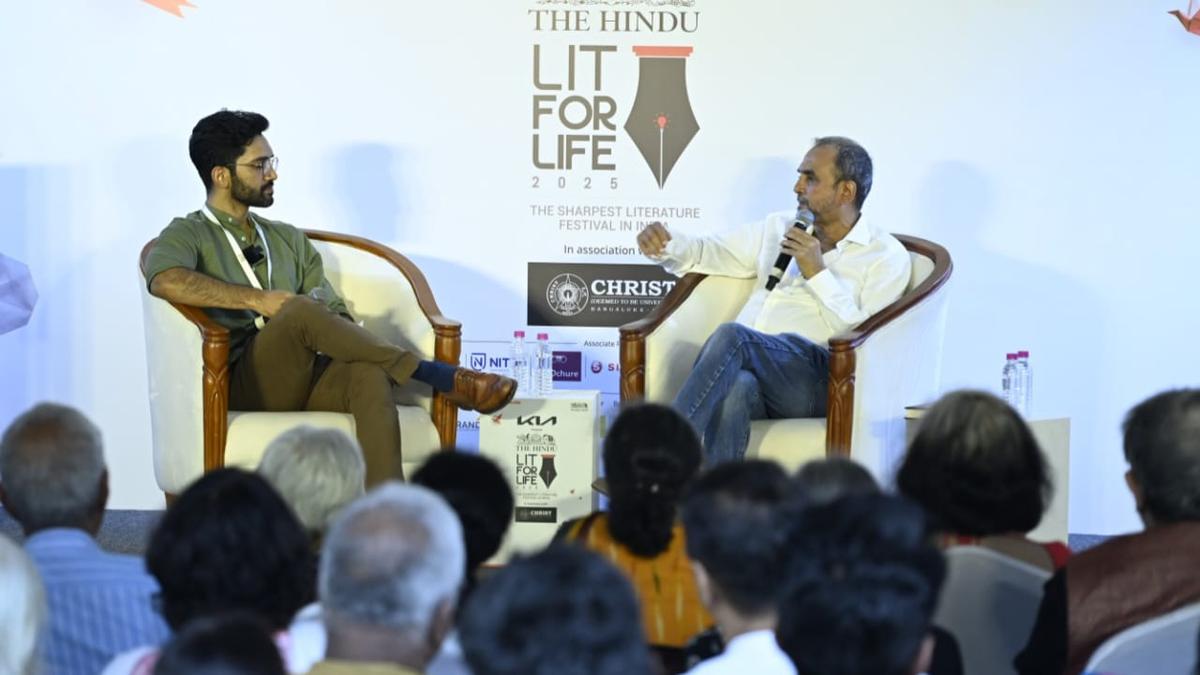
The Hindu Lit for Life 2025: The ‘Japanese invasion of Madras’ that never happened, but led to exodus
The Hindu
Author Mukund Padmanabhan explores the undocumented exodus of 1942 in his book 'The Great Flap of 1942' at The Hindu Lit for Life.
An exodus triggered by an unreal fear. A “non-event” that led to many bizarre historical events. A rare incident that went largely undocumented. Mukund Padmanabhan’s book ‘The Great Flap of 1942’ is all this and more.
Author and former editor of The Hindu, Mukund Padmanabhan, in an engaging conversation with historian Manu Pillai at The Hindu Lit for Life 2025 elaborated on a latent piece of history that caught his fascination so much that he decided to write a book about it titled the same.
“What exactly was this non-event that actually caused so many events to take place, after?” asked Manu Pillai in an attempt to set context to the conversation that hinged on how the British Raj panicked simply over the suggestion of a Japanese invasion in 1942.
“When the Japanese came close, they sent aircraft carriers to the Indian Ocean, they bombed Vishakapatnam and Kakinada but they never had any intention of invading India. In the book I argue that the British took measures that actually stoked a great sense of panic and people fled from all over the country. I don’t think many people know that almost 90 percent of Madras could have fled. The story was also largely undocumented,” said Mr. Padmanabhan. This fear, he believes, shaped the course of Nationalist movement and the author called for the examination of some of the major events of 1942 - the Cripps mission and Gandhiji’s call for the Quit India Movement, in the context of this fear.
“Exodus has its own dynamic. The more people leave, the more leave,” reminded Mr. Padmanabhan. “Everyone’s lives changed. The flap impacted people in different ways. But what fascinated me was why did so many people flee so many parts of India, like coastal Odisha, coastal Tamil Nadu… for an invasion that was never even planned,” added Padmanabhan whose focus remained the dystopian futility of such an event in history.
Why does such stories exist only in families, within their silences and memories? asked Mr. Pillai. One of the reasons is that, traditionally, historians have focused on the Freedom Movement, said Mr. Padmanabhan. “This story slipped between the cracks. No one was paying attention to this and finally it was a non-event. The other thing is that -- if 75 to 90 per cent of Madras was evacuated, you would imagine that the newspapers of the time would have photographs or long reports. But there was very little human interest stories at the time,” said Mr. Padmanabhan. Communication with the governors and private diaries of bureaucrats at the time, served as references.
The British treated this in a very “cynical and cold” way; in a rather managerial manner, added Mr. Padmanabhan. For them, the exodus also was convenient in being less people to manage in the event of a Japanese invasion. Mr. Pillai quipped in, “The only reference that I have for my own time is that of COVID. I remember the initially days, with the streets being empty. I can almost visualise it and compare it with the COVID period. How does one evacuate a city?”













